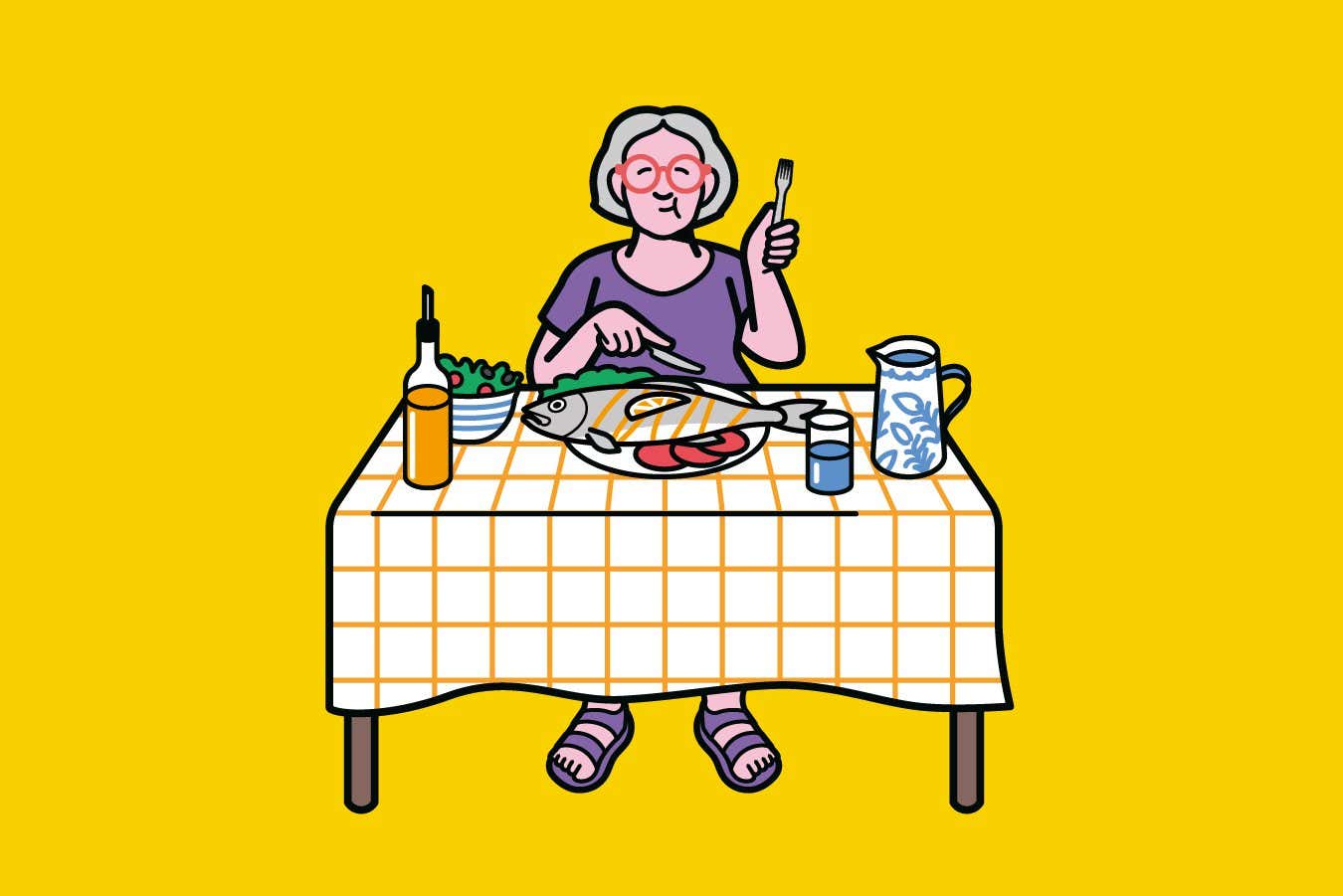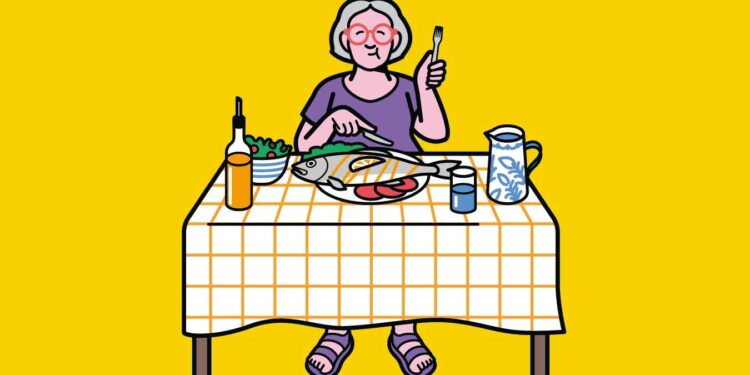
One of the standard questions put to centenarians is: “What’s your secret?” The answers often revolve around food. For Maria Branyas Morera, who was the world’s oldest person when she died last year aged 117, it was eating three yogurts a day. Jeanne Calment, officially the oldest person to have ever lived (though that has been disputed), put her amazing staying power down to olive oil, chocolate and the occasional glass of port.
Of course, what you eat matters. Diet has a huge influence on your health, and staying healthy is a prerequisite for a long life. But a better question might be: “What didn’t you eat?”
This article is part of a special issue in which we explore how to make your latter years as healthy and happy as possible. Read more here
For instance, Lars Fadnes at the University of Bergen in Norway and his colleagues have recently devised a longevity-enhancing diet, based on their analysis of a huge dataset called the Global Burden of Disease Study. This revealed, to no great surprise, that typical Western diets – high in refined grains, added sugars, red and processed meats and dairy products, and low in wholegrains, fresh fruit and vegetables, nuts and fish – aren’t optimal for longevity. In fact, they are deadly, responsible for 11 million premature deaths a year.
The researchers modelled what would happen if people eating this diet switched permanently to a healthier one, and found a major impact on life expectancy. For example, a 20-year-old woman in the US today can expect to live to 80 on a typical diet eaten there. But if she drastically cut down on meat, sugar, dairy and refined grains and switched permanently to a diet of mostly wholegrains, fruit, vegetables, nuts, legumes and fish, her life expectancy would increase to 89 – a gain of nearly a decade. A 20-year-old US man making the same switch would similarly increase his life expectancy, albeit from a lower starting point, from 76 to 86.
“We gain a lot from increasing whole grains, nuts and legumes, and also reducing sugary foods and meats, processed and red meats in particular,” says Fadnes.
“
Even if your 20th birthday is a long time ago, there are good reasons to still make the change
“
And even if your 20th birthday is a long time ago, there are good reasons to still make the change. A 60-year-old US woman making the switch would gain more than seven extra years, increasing her life expectancy from 81.6 to 89. Even an 80-year-old gains a few extra years.
Fadnes also modelled what would happen if people switched to a diet halfway between a Western-style one and the optimal one. They still saw gains in life expectancy, albeit lesser ones.

Eating plenty of fresh vegetables can add years to your life
nrd/Unsplash
These are theoretical models – a clinical trial of a longevity-promoting diet would take decades to deliver results. But there is real-world data to back the headline conclusion that diet has a big impact on health in later life.
Last year, Zhaoli Dai-Keller at the University of New South Wales in Sydney, Australia, and her colleagues took a deep dive into the dietary habits of thousands of people aged 95 and over who still lived in community settings across east Asia, Australia and western Europe. By definition, these people had aged successfully, and the researchers found that they had earned it.
Don’t add salt
They were, on the whole, paragons of dietary virtue. Only a quarter drank alcohol, and they mostly ate a balanced and diverse diet rich in fruit, vegetables, white meat, fish and legumes. Something else also stood out, says Dai-Keller. “Salt intake tends to be lower in the centenarians,” she says. High salt consumption is a causal factor in cardiovascular disease, the world’s biggest killer.
In a similar study, Anne-Julie Tessier and Marta Guasch-Ferré at Harvard T.H. Chan School of Public Health in Boston, Massachusetts, and their colleagues reanalysed data from two research projects that followed more than 105,000 people over three decades starting in 1986, as they progressed from middle age into early old age. They were looking for evidence of healthy ageing, which they defined as reaching 70 free from major chronic diseases, as well as being physically fit and mentally sharp.
Only around 10 per cent of the participants achieved that, and when the researchers analysed what they had in common, they found that diet was key. The majority had stuck to healthy Mediterranean-style fare throughout middle age. Those who binged on fatty, salty and meaty foods, on the other hand, rarely aged healthily.
Reaching 70 in good health is no guarantee of getting to 100, of course, but it helps.
However, longevity isn’t just about what you eat, but how much. According to the 2024 study led by Dai-Keller, one of the defining features of people aged 95 and over is that they are slim. Around half were a normal weight, and a third were underweight.
Weight and day-to-day functioning
Obesity isn’t a prescription for making it to 100, it seems. However, when the researchers looked at the ability of their participants to carry out basic daily living activities, they found that being overweight, but not obese, was significantly helpful for day-to-day functioning compared with being a normal weight. Being underweight increased the risk of impairment by around 25 per cent.
Which brings us neatly to one of the methods sometimes advocated for longevity: calorie restriction. One of the most reliable ways to extend the lifespans of laboratory animals is to restrict their preferred calorie intake by 25 per cent or more. However, it is hard for people to do this, and calorie restriction has yet to be proven to work in humans – and even if it does extend life, it might impair the ability to carry out day-to-day tasks.
All in all, though, if you want to give yourself the best chance of living to 100 in the best condition possible, a large slice of the secret is on your plate.
Topics:
Source link : https://www.newscientist.com/article/2494953-the-science-revealing-how-the-right-diet-can-add-a-decade-to-your-life/?utm_campaign=RSS%7CNSNS&utm_source=NSNS&utm_medium=RSS&utm_content=home
Author :
Publish date : 2025-09-16 16:00:00
Copyright for syndicated content belongs to the linked Source.

